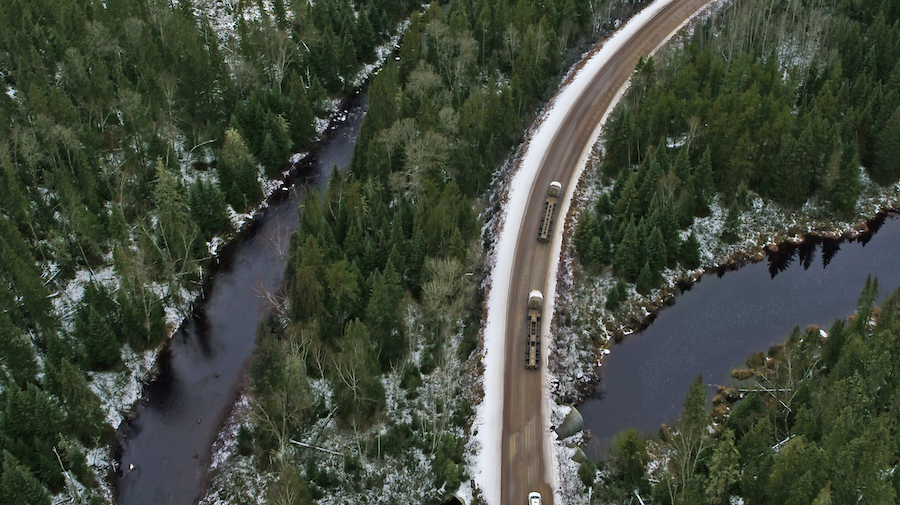
Automated systems firm Robotic Research will help adapt platooning systems to off-road trucks for Canada’s forest industry, the company announced May 12.
In January this year, the Maryland-based company announced it helped develop North America’s first automated heavy-duty transit bus, the Xcelsior AV, for the largest bus manufacturer in North America, New Flyer. Now it plans to apply similar expertise off-highway.
The company is partnering with FPInnovations, a Canadian private non-profit research and development center focused on the Canadian forest sector. They aim to develop trucks with Society of Automotive Engineers (SAE) Level 4 autonomy—that is, able to act without any human intervention in the vast majority of situations—for the kind of challenging terrains in which the natural resource sector typically operates.
The multi-year project aims to create unmanned convoys of Class 8 trucks—the heaviest class—equipped with automated driving systems (ADS) that follow a driver in a lead vehicle. It will have to contend with challenging Canadian conditions such as four-season weather and off-pavement roads, particular those used by the natural resource sector in continental and polar climates.
“We are extremely proud to have been selected by FPInnovations and believe this project is a transformative model of how ADS can aid industries, like forestry, operating in perilous conditions or facing workforce shortages,” Alberto Lacaze, president of Robotic Research, said in a statement. “The unmanned truck convoys work in concert with commercial drivers to enhance their efficiency, while also protecting their safety.”
In the beginning, truck convoys will be put through safety trials that mimic the routes from harvesting sites to sawmills. Once the system is proven to be secure, FPInnovations will run trials on actual resource roads, known to be challenging because of dust, sharp curves and steep slopes.
Success with this project would not only benefit Canada’s forest industry, but potentially other Canadian sectors such as mining resources and natural resources. The hope is that such advances may help address labor shortages in those fields and improve the quality and viability of rural jobs where natural resources are located.
“We are very pleased to partner with Robotic Research, whose leading-edge expertise in the commercial on-road and defense transportation will greatly benefit Canada’s natural resource sectors and help address an acute labor shortage,” Stéphane Renou, president and CEO of FPInnovations, said in a statement.

